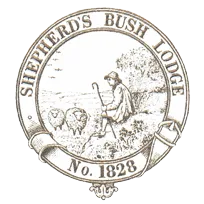Freemasonry and Society
Freemasonry demands from its members a respect for the law of the country in which a man works and lives. Its principles do not in any way conflict with its members’ duties as citizens, but should strengthen them in fulfilling their private and public responsibilities. The use by a Freemason of their membership to promote his own or anyone else’s business, professional or personal interests is condemned, and is contrary to the conditions on which he sought admission to Freemasonry. His duty as a citizen must always prevail over any obligation to other Freemasons, and any attempt to shield a Freemason who has acted dishonourably or unlawfully is contrary to this prime duty.
Secrecy
The secrets of Freemasonry are concerned with its traditional modes of recognition. It is not a secret society, since all members are free to acknowledge their membership and will do so in response to inquiries for respectable reasons. Its constitutions and rules are available to the public. There is no secret about any of its aims and principles. Like many other societies, it regards some of its internal affairs as private matters for its members.
Freemasonry and Politics
Freemasonry is non-political, and the discussion of politics at Masonic meetings is forbidden.
Other Masonic Bodies
Freemasonry is practiced under many independent Grand Lodges with standards similar to those set by the United Grand Lodge of England. There are some Grand Lodges and other apparently Masonic bodies which do not meet these standards, e.g. which do not require a belief in a Supreme Being, or which allow or encourage their members to participate in political matters. These Grand Lodges and bodies are not recognised by the United Grand Lodge of England as being Masonically regular, and Masonic contact with them is forbidden.
Conclusions
A Freemason is encouraged to do his duty first to God (by whatever name he is known) through his faith and religious practice; and then, without detriment to his family and those dependent on him, to his neighbour through charity and service. None of these ideas is exclusively Masonic, but all should be universally acceptable. Freemasons are expected to follow them
To pursue your interest in becoming a Freemason and a member of <NAME OF THE LODGE> follow these steps:
In the first instance contact the Lodge Secretary by completing the contact tab. Masons do not solicit for members. You’ll need to express your personal interest in joining Freemasonry.
Subject to you being considered eligible and properly motivated you will be asked to meet in person two members of the Polytechnic Lodge and later complete an application form for membership.
You may subsequently be invited to meet with the Lodge Committee to discuss your application and to answer any questions you may have.
Your application will be presented to a Lodge Meeting and a secret ballot will be conducted in which Members vote on your suitability. You will be notified of the result and if successful invited to attend a Lodge Meeting for your initiation into Membership.
THE FUTURE OF FREEMASONRY
An independent study has been conducted by a non-Masonic body on “The Future of Freemasonry”. The Report has been published and can be read by clicking on the link below.
http://www.freemasonrytoday.com/ugle-sgc/ugle/item/511-future-of-freemasonry-study-is-published
